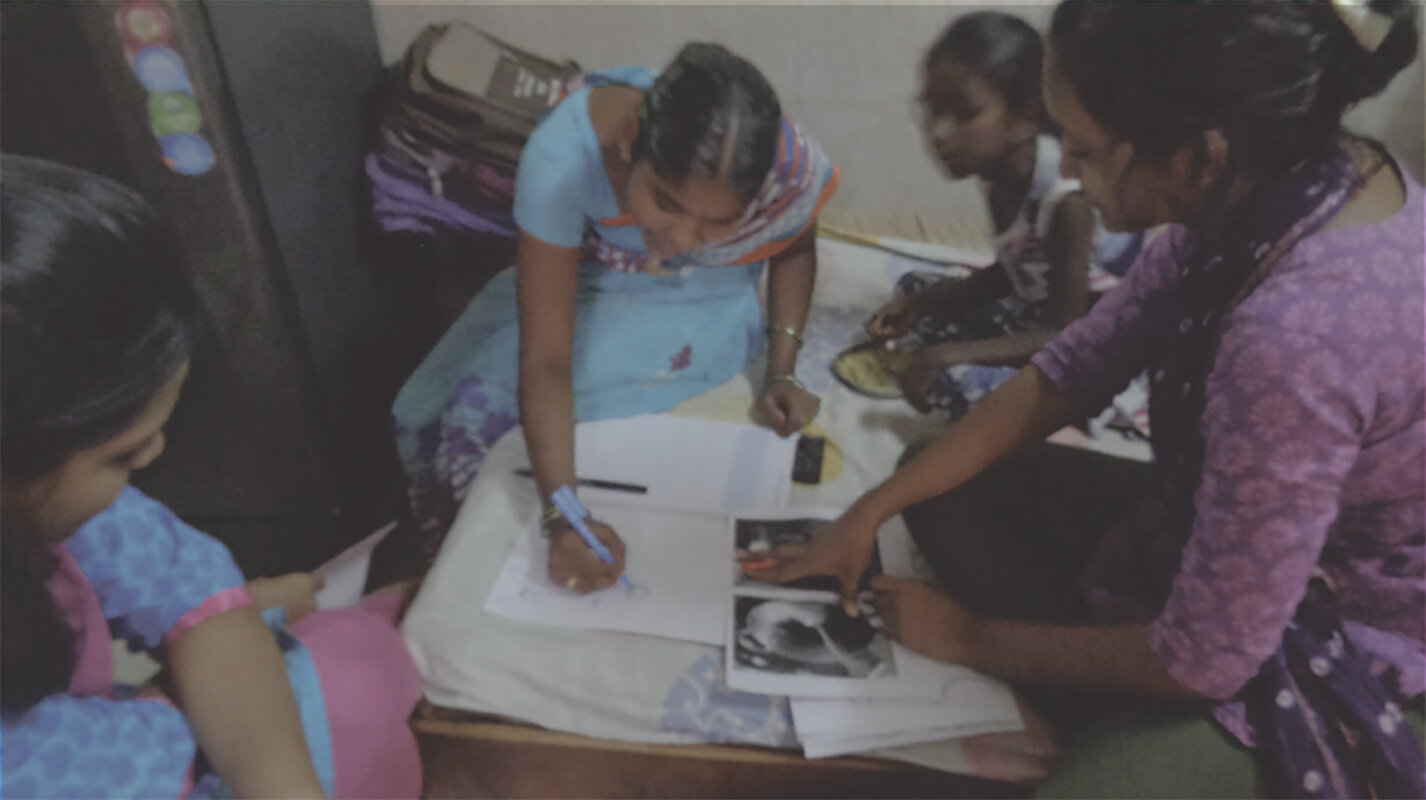
DESIGN RESEARCH
Client : TCS
Category : Design Research . PARTICIPatory design. healthcare
Year : 2017
As part of the research activities at TCS Innovation Labs, I have participated in user research and analysis, as well as identifying product and user needs for product development and experimental studies. I have particularly explored and interacted with users with lesser literacy, users with visual impairment, as well as enterprise users within the organization.
I have used elicitation techniques such as Contextual Inquiry, Shadowing and Rapid Ethnography Techniques. I have contributed to the design and development of mobile applications to study the usability of security interfaces on smart phones.
LIST OF PUBLISHED PAPERS I HAVE CONTRIBUTED TO
Participatory Design of Vaccination Services with Less-Literate Users. HCI (30) 2017: 301-308
A Critique on Participatory Design in Developmental Context: A Case Study. HCI (11) 2017: 647-658
Coping with Accessibility Challenges for Security - A User Study with Blind Smartphone Users. INTERACT (4) 2017: 3-22
Modeling Less-Literate User's Choices of Smartphone Authentication Modes. INTERACT (4)2017: 496-500
PROJECT 1
Study of Participatory Design of Vaccination Services with Less-literate Users
The study was part of a larger research to gain insights into vaccination experiences and challenges faced by users of vaccination service at Primary Health Centers, Vaccination Camps and Hospitals and attempt to redesign the whole experience. This particular study used participatory design in an attempt to redesign immunization service and also assessed suitability of Participatory Design approach in developmental context
User
Less literate, young mothers who were immigrant to the city, living in the urban slums of Mumbai
Most homes had a constraint of space and our PD sessions were held amidst blaring television noise, user preparing lunch, kids(like the one on the right), houseguests and family members interrupting us!
Process
Interviews were used for retrospective elicitation of experiences and
challenges. We co-created Customer Journey Maps and stakeholder maps with users. We purchased all the necessary artefacts from the users neighbourhood to ensure things were commonplace to the user.
Process
Sanders frameworks of Priming, Probing, Making(to record experiences), Telling and Enacting (role-play and acting) were used
KEY FINDINGS
Contribution to knowledge
Applicability and Adaptation/critique of PD
Applicability of PD techniques
Factors affecting PD (breakdowns)
Preparing users, Engaging users,
Breaking power distance
Family hierarchy power structures
Enabling creativity
Communication barriers
PD outcomes
Design ideas for service alternatives
Elicitation of issues and challenges faced, mis-information
Team members : Sylvan Lobo, Pankaj Doke, Ulemba Hirom, Sujit Devkar








